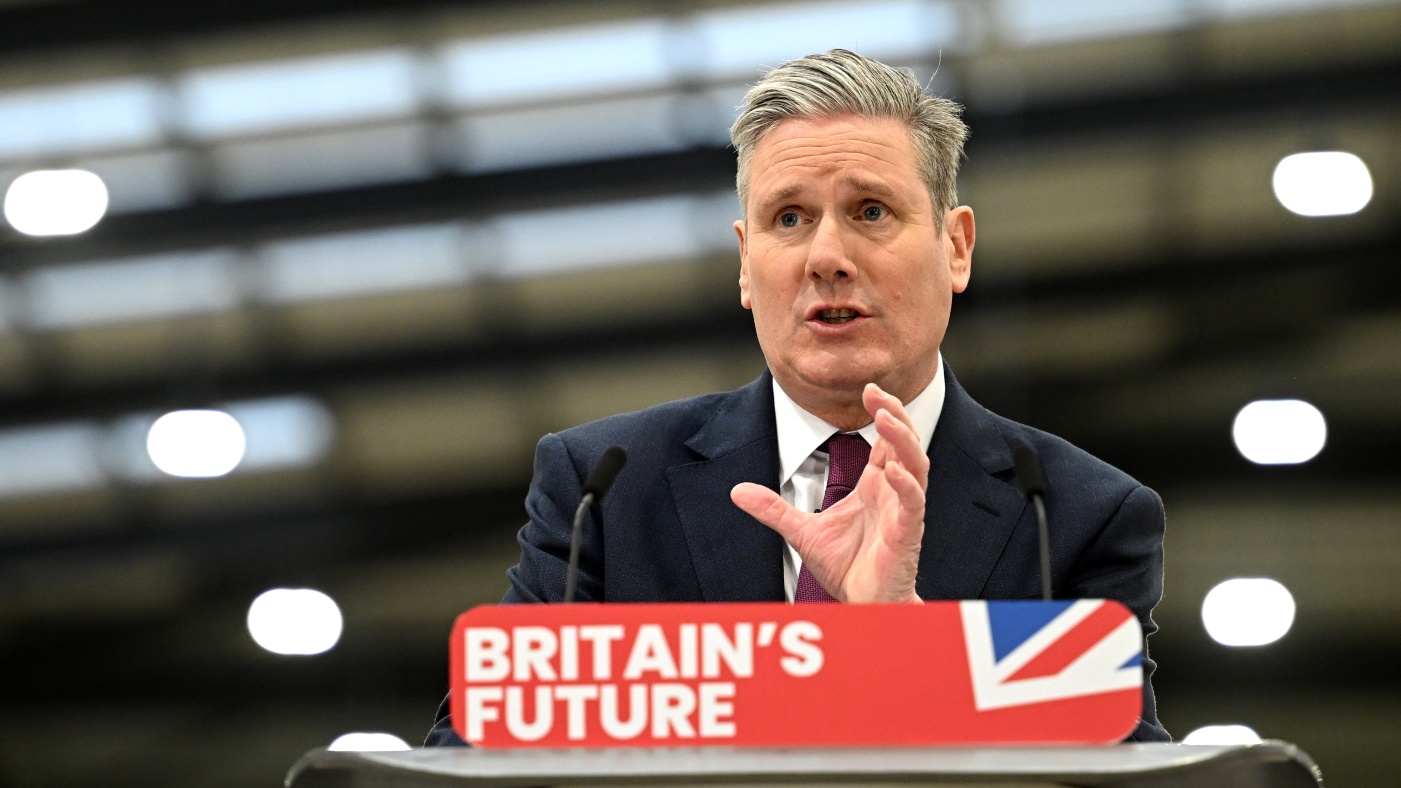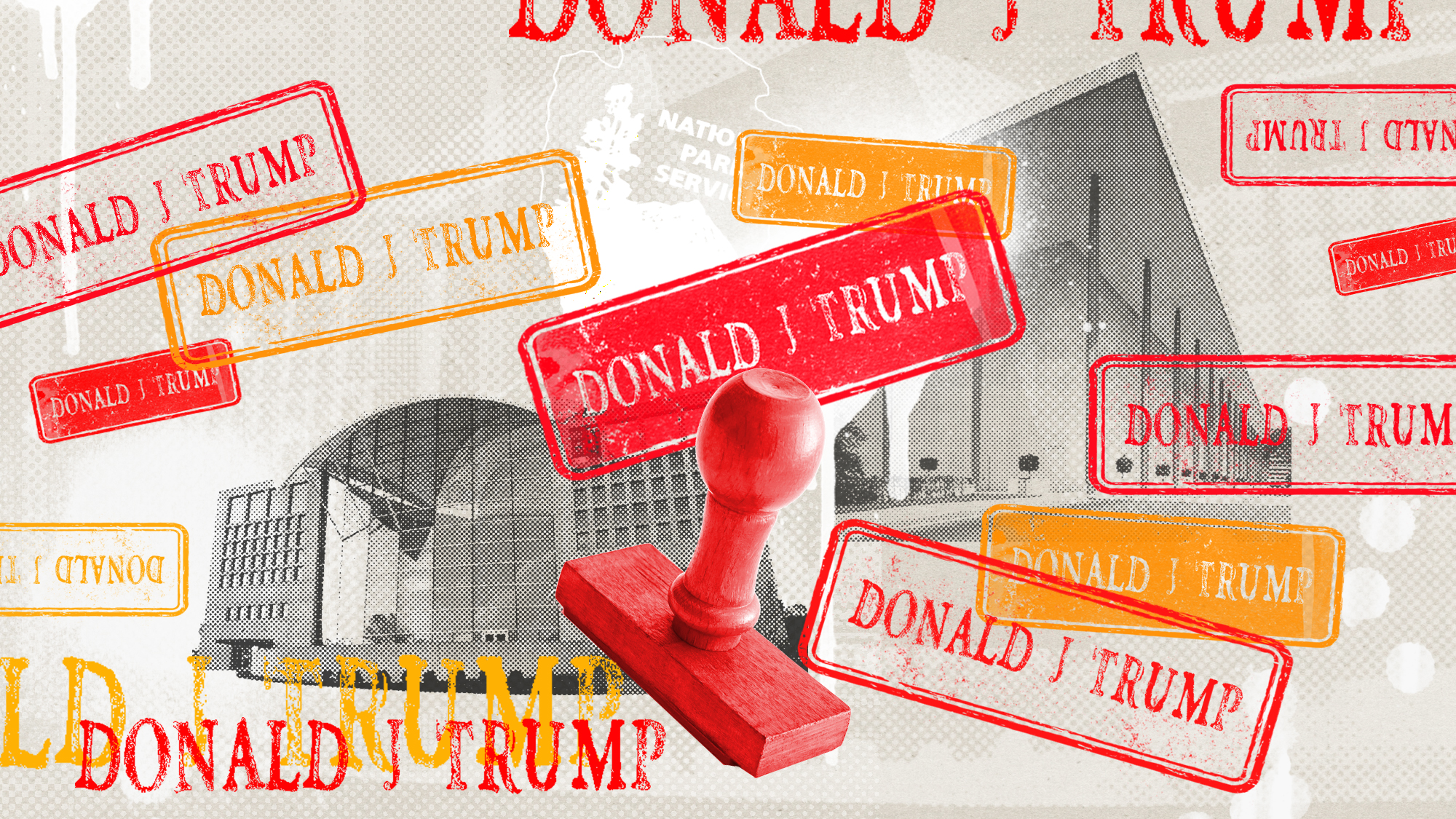How many seats do Labour and the Tories need to win at the election?
Changes to constituency boundaries mean Keir Starmer needs an even bigger swing in 4 July election to form a majority

A free daily email with the biggest news stories of the day – and the best features from TheWeek.com
You are now subscribed
Your newsletter sign-up was successful
The northwest of England will play a "crucial role" in the general election as Labour looks to convert its commanding poll lead into a majority of seats in the House of Commons.
The region is home to the number one target seat for Labour – Burnley – and the chief target for the Conservatives – Warrington South, said Yahoo! News. It contains five of Labour's top 10 targets and three of the Tories' top 10.
Labour would need a swing of just 0.13% to take Burnley but, with new boundary changes introduced for this election favouring the Conservatives, it will require a double-digit swing nationally if it hopes to avoid a hung parliament and govern alone after the election.
The Week
Escape your echo chamber. Get the facts behind the news, plus analysis from multiple perspectives.

Sign up for The Week's Free Newsletters
From our morning news briefing to a weekly Good News Newsletter, get the best of The Week delivered directly to your inbox.
From our morning news briefing to a weekly Good News Newsletter, get the best of The Week delivered directly to your inbox.
How many seats are needed for a parliamentary majority?
To win a majority in Parliament, a party needs to secure one more seat than the combined total of all other parties. With 650 seats to be won, the magic number is 326.
The size of the majority is the number of extra seats the winning party has. If one party won 326, then the number of seats held by other parties would be 324 and the majority would be two.
How many seats do the Conservatives and Labour hold right now?
The Conservatives, who won 365 seats in the 2019 election, currently hold 346 due to a number of resignations, suspensions, defections and by-election defeats, so they have an effective working majority of 49.
This number also takes into account the number of non-voting MPs in Parliament. Irish nationalist party Sinn Féin holds seven seats, but has a long-held tradition of not attending the Commons, while the Speaker and their three deputies are also excluded from voting.
A free daily email with the biggest news stories of the day – and the best features from TheWeek.com
In contrast, the Labour Party won 202 seats in 2019 and has seen that number rise to 205 today.
Despite suffering its worst defeat since 1935 in the 2019 general election, The Economist's latest seat prediction indicates that Labour, under Keir Starmer's leadership, is on track to win 389 seats at the election – giving them a Commons majority of 120 – with the Conservatives securing just 185 seats.
What do the new boundary changes mean for Labour?
The challenge facing Labour has been made "even more difficult" by new boundary changes, Sky News's Sam Coates said. This is because the UK's 650 constituencies have been redrawn to account for population shifts and to equalise voter numbers.
Following the 2019 election, Labour initially needed a direct swing of 7% from the Tories to achieve a hung parliament. However, with boundary changes this requirement has increased to 8.3%. For an overall majority, Labour's swing requirement has risen from 12 to 12.7 points. That is larger than the 10.2% swing that Tony Blair achieved when he led Labour to power in 1997, "and more than double the change achieved at any other election since 1945", said Bloomberg.
While data analysis suggests that any uniform swing from Conservatives to Labour between 4.2% and 12.7% could result in a hung parliament, that is made on the assumption that there will be no change in the votes cast for other parties – "which is highly unlikely to be true", said The Independent.
For example, according to polling experts Colin Rallings and Michael Thrasher, a 10-point swing from the SNP to Labour could lead to Starmer gaining 15 seats under the new boundaries, easing his path to Downing Street.
What about the smaller parties?
While the battle between the Conservatives and Labour will take precedence over the coming weeks, the success of the Liberal Democrats and Reform UK will "shape much of the outcome", said The Independent.
Political analysts at Electoral Calculus forecast that Reform will win no seats, but in a best-case scenario said they could win as many as 15. Either way, it "can inflict huge damage on the Tories by splitting the right-wing vote", said the news site, with pollsters warning it could cost the Conservatives majorities in more than 30 marginal seats.
The Conservatives are also facing a squeeze on their left, with the Lib Dems expected to pick up dozens of seats in the so-called 'blue wall' in the south and southwest of the country.
With polls suggesting the party could jump from the 11 seats it won in 2019 to between 44 and 58 on 4 July, it would catapult the Lib Dems over the SNP – which is currently forecast to see its number of seats drop from 43 to just 12 – to become the third largest party in Westminster.
Sorcha Bradley is a writer at The Week and a regular on “The Week Unwrapped” podcast. She worked at The Week magazine for a year and a half before taking up her current role with the digital team, where she mostly covers UK current affairs and politics. Before joining The Week, Sorcha worked at slow-news start-up Tortoise Media. She has also written for Sky News, The Sunday Times, the London Evening Standard and Grazia magazine, among other publications. She has a master’s in newspaper journalism from City, University of London, where she specialised in political journalism.
-
 What is the endgame in the DHS shutdown?
What is the endgame in the DHS shutdown?Today’s Big Question Democrats want to rein in ICE’s immigration crackdown
-
 ‘Poor time management isn’t just an inconvenience’
‘Poor time management isn’t just an inconvenience’Instant Opinion Opinion, comment and editorials of the day
-
 Bad Bunny’s Super Bowl: A win for unity
Bad Bunny’s Super Bowl: A win for unityFeature The global superstar's halftime show was a celebration for everyone to enjoy
-
 The Mandelson files: Labour Svengali’s parting gift to Starmer
The Mandelson files: Labour Svengali’s parting gift to StarmerThe Explainer Texts and emails about Mandelson’s appointment as US ambassador could fuel biggest political scandal ‘for a generation’
-
 Will Peter Mandelson and Andrew testify to US Congress?
Will Peter Mandelson and Andrew testify to US Congress?Today's Big Question Could political pressure overcome legal obstacles and force either man to give evidence over their relationship with Jeffrey Epstein?
-
 Reforming the House of Lords
Reforming the House of LordsThe Explainer Keir Starmer’s government regards reform of the House of Lords as ‘long overdue and essential’
-
 A running list of everything Donald Trump’s administration, including the president, has said about his health
A running list of everything Donald Trump’s administration, including the president, has said about his healthIn Depth Some in the White House have claimed Trump has near-superhuman abilities
-
 How long can Keir Starmer last as Labour leader?
How long can Keir Starmer last as Labour leader?Today's Big Question Pathway to a coup ‘still unclear’ even as potential challengers begin manoeuvring into position
-
 What is at stake for Starmer in China?
What is at stake for Starmer in China?Today’s Big Question The British PM will have to ‘play it tough’ to achieve ‘substantive’ outcomes, while China looks to draw Britain away from US influence
-
 Can Starmer continue to walk the Trump tightrope?
Can Starmer continue to walk the Trump tightrope?Today's Big Question PM condemns US tariff threat but is less confrontational than some European allies
-
 A running list of everything Trump has named or renamed after himself
A running list of everything Trump has named or renamed after himselfIn Depth The Kennedy Center is the latest thing to be slapped with Trump’s name